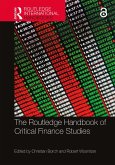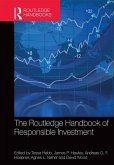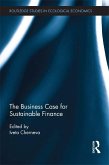Yet alternative approaches are also gaining traction, including work that emphasizes the cultural homologies and interconnections with finance as well as work that, more broadly, is both empirically rigorous and theoretically ambitious. Importantly, across these various approaches to finance, a growing body of literature is taking shape which engages finance in a critical manner.
The term "critical finance studies" nonetheless remains largely unfocused and undefined. Against this backdrop, the key rationales of The Routledge Handbook of Critical Finance Studies are firstly to provide a coherent notion of this emergent field and secondly to demonstrate its analytical usefulness across a wide range of central aspects of contemporary finance.
As such, the volume will offer a comprehensive guide to students and academics on the field of Finance and Critical Finance Studies, Heterodox Economics, Accounting, and related Management disciplines.
Chapter 14 of this book is freely available as a downloadable Open Access PDF at http://www.taylorfrancis.com under a Creative Commons Attribution-Non Commercial-No Derivatives (CC-BY-NC-ND) 4.0 license.
Dieser Download kann aus rechtlichen Gründen nur mit Rechnungsadresse in A, B, BG, CY, CZ, D, DK, EW, E, FIN, F, GR, HR, H, IRL, I, LT, L, LR, M, NL, PL, P, R, S, SLO, SK ausgeliefert werden.









